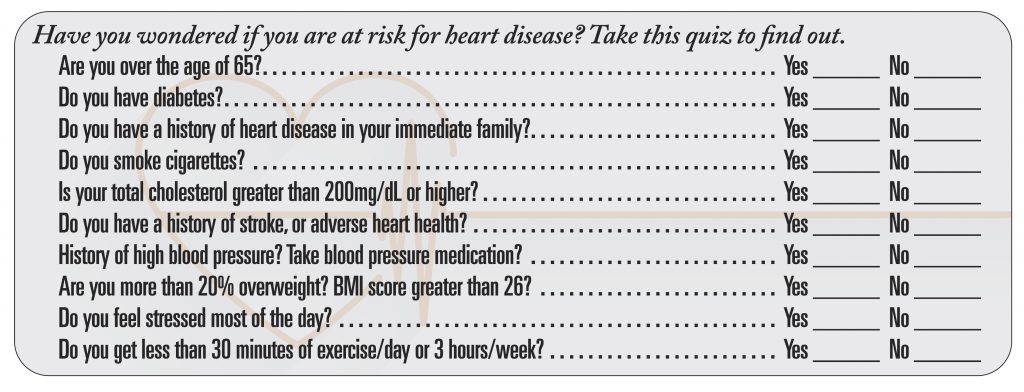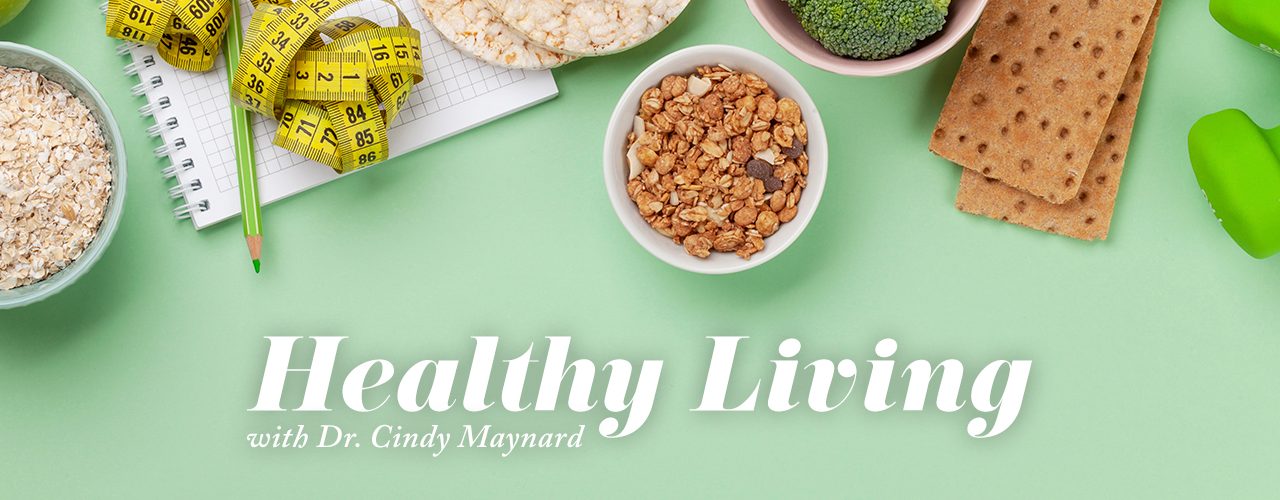By Dr. Cindy Maynard

How did you do? If you answered “Yes” to two or more questions, you could be at risk for heart disease, including atherosclerosis, heart attack, coronary artery disease, and stroke. Read on to learn how you can lower your risk.
Heart disease is at the top of our country’s most serious health problem. Fortunately, it is one of the most preventable diseases. As you probably guessed by taking the quiz, some risk factors are under your control, and others are not. For example, uncontrollable risk factors include being male, age, family history of heart disease, and even race (African Americans and Mexican Americans are more likely to have heart disease than Caucasians). However, controllable risk factors include those relating to lifestyles, such as weight, exercise, smoking, and stress and anger.
Making changes in your lifestyle is the best way to lower your risk of heart disease. Here are some proven methods to help you lower your risk and improve your health.
- Know Your Numbers: When you have too much fat (fatty plaque) in your blood, it can clog your arteries and put you at risk for heart disease. Here are four main lipids (fats) that circulate in our blood and their optimal numbers:
- Total Cholesterol: 200mg/dl or less: Optimal
- Triglycerides: 150mg/dL or less: Optimal
- HDL (considered “good” cholesterol, the higher number the better): Between 36-50mg/dl is normal; above 50mg/dl is Optimal
- LDL: Less than 100 mg/dl: Optimal
- Smoking: Smokers are at double the risk for heart attack than nonsmokers.
- Activity: Even moderate activity such as walking or gardening can lower risk of heart disease. Start out small.
- Body Weight: Even losing 10% of body weight can help unburden your heart. Increasing fiber and plant-based foods such as fruits and vegetables are helpful with weight loss and lowering cholesterol and make you feel full faster.
- Stress: When stress becomes a normal part of the day instead of a rare occurrence, it can affect behavior that leads to heart disease such as overeating, smoking, or high blood pressure.
Living a healthy lifestyle starts in the mind long before it shows up in our behavior. Break big goals into smaller bite-size pieces for long term success. Think of your changes as producing a new, better you, rather than deprivation. Reward yourself for little successes. Remember, our greatest wealth is our health.






